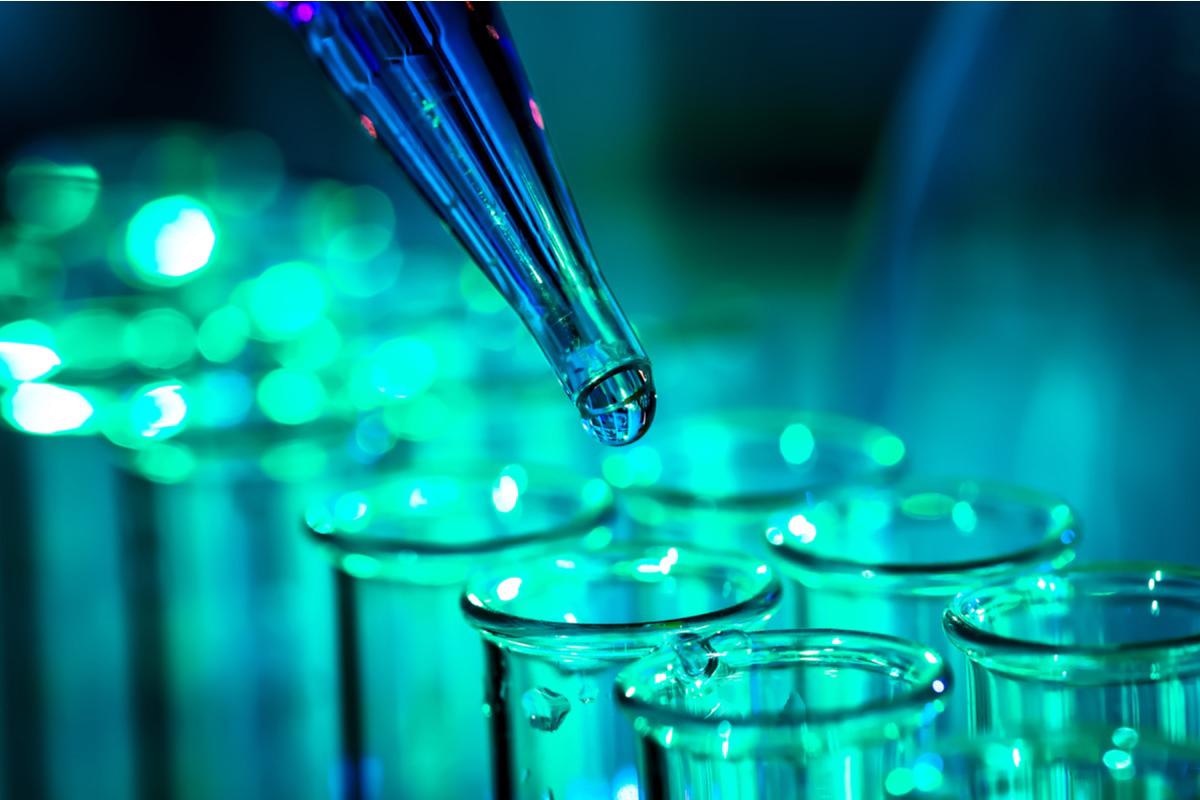 Interview conducted by Danielle Ellis, B.Sc.Jun 9 2022
Interview conducted by Danielle Ellis, B.Sc.Jun 9 2022Following CHEMUK 2022, we spoke to Dr. Russell Clarke, a Senior Business Engagement Manager with IBioIC, about the Industrial Biotechnology sector and how the IBioIC supports its members.
Please can you introduce yourself and your professional background and tell us about the Industrial Biotechnology Innovation Centre (IBioIC) and your current role at IBioIC?
My name is Dr. Russell Clarke. I am a Senior Business Engagement Manager with IBioIC.
I joined IBioIC in April 2020. I engage with our member companies and help them to commercialize their technology. I have a specific focus on the chemicals industry. Before joining IBioIC, I spent 27 years in the chemical industry in the North East of England and Grangemouth. During my time in the chemical industry, I worked for a number of companies, including Dow, CalaChem, and Thomas Swan, in a variety of senior roles in operations, R&D, and business development.
IBioIC is a networking and support organization that connects industry, academia, and government to bring biotechnology processes and products to the global market. The Centre offers companies the tools needed to accelerate and de-risk this journey. IBioIC was set up in 2014 with the remit of supporting the delivery of Scotland’s National Plan for Industrial Biotechnology, which has new ambitious targets to grow the sector in Scotland to over 220 companies active in IB with £1.2 billion in associated turnover by 2025.
IBioIC was established in 2014 to fulfill the aims of the National Plan for Industrial Biotechnology to grow the industrial biotechnology sector. What is industrial biotechnology, and how does this sector work towards net-zero?
Industrial Biotechnology uses plant-based and waste resources, and bio-based processes, to create more sustainable means to create materials, medicines, chemicals, and energy. Industrial Biotechnology offers green and sustainable alternatives to fossil fuels – and this can be everything from energy to medicines and food packaging. Biotechnology holds one of the keys to unlocking the change we need to move from an economy largely reliant on fossil fuels towards the Net-Zero targets set for 2045 in Scotland and the 2050 targets set at the UK level.
How does the work of the IBioIC contribute to fulfilling the aims of the National Plan for Industrial Biotechnology?
IBioIC has a strong network that spans industry, academia, and government. This means that we can link companies with other companies, academics, or funding bodies. We offer funding, skills development, and scale-up facilities.

Image Credit: motorolka/Shutterstock.com
How does IBioIC support the innovation journey, scale-up, and skills of its members?
IBioIC creates the networks and a supportive environment to fast track the growth of industrial biotechnology companies. We connect business to academic expertise and can fund innovative collaborative R&D projects. IBioIC has its own bioprocess scale-up facilities, based at Heriot Watt University and the University of Strathclyde, that support the scale-up of new bioprocesses from bench up to 30 litre volume. These open-access facilities support upstream and downstream process development, data analytics, and offer several practical training courses.
In addition, we have worked with colleges and universities to develop and deliver bespoke training programs at Ph.D., MSc, and HND levels to ensure that the industry has access to the skilled workforce they need to grow. Most importantly, we are champions for IB in Scotland and the UK, and provide many opportunities for like-minded businesses to connect and collaborate to grow their businesses.
You recently attended CHEM UK; what are the benefits of such tradeshows for facilitating collaboration within the industrial biotechnology sector?
The benefit of CHEM UK is that it is attended by representatives from across the chemical industry supply chain in the UK. This means that we have the opportunity to meet with a range of key industry representatives and develop key relationships, which we hope will lead to future collaborations.
Since the Centre’s establishment, how have you seen the industrial biotechnology sector change, and what are some of the current challenges this sector faces?
Since IBioIC was established in 2014, we have seen an increasing industrial awareness of the potential of Industrial Biotechnology as a potential route to net-zero compliance. We now have over 140 members, and this number continues to increase.
Introduction to Industrial Biotechnology
The biggest challenge for the sector is that many of our member companies are micro or SME’s and so find it a challenge to make the transition from concept to commercial manufacture.
What are the next steps for you and IBioIC?
We want to connect with chemical manufacturers in the UK and beyond to ensure that they are aware of the most recent advances in IB which could be applicable to their business and ultimately provide solutions to their fossil fuel reduction targets.
Are there any particular case studies demonstrating the work of IBioIC and its members that you wish to highlight?
Where can readers find more information?
About Dr. Russell Clarke
Russell graduated with a degree in Pure and Applied Chemistry from the University of Strathclyde in 1988 and a Ph.D. in Organometallic Chemistry from the University of St Andrews in 1993.
Thereafter he spent 5 years in research and development with Fine Organics and then Dow Chemical in the North East of England before moving into a commercial management role with Dow. He joined Thomas Swan in 2004 where he held a number of roles, latterly as Commercial Director for the Contract Manufacturing Business Unit.
Russell joined CalaChem Ltd in Grangemouth in 2012 and spent time in various functions including supply chain, operations, and commercial before joining IBioIC in April 2020.